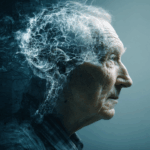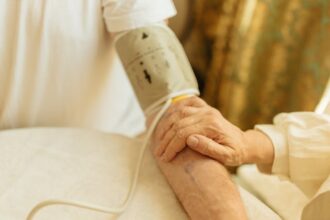When Ulrik Wisløff and Atefe R. Tari from the Norwegian University of Science and Technology (NTNU) released their book “Microtraining – 7 Weeks to Boost Fitness and Strength” earlier this year, it captured significant attention in Norway. The book highlighted a simple yet powerful message – even small amounts of physical activity can yield substantial health benefits. Building on this idea, the researchers have shifted their focus to how physical fitness impacts brain health, collaborating with colleagues from the Queensland Brain Institute in Australia. Their latest findings, published in the British medical journal The Lancet, underscore exercise’s vital role in supporting cognitive function as we age.
The study presents compelling evidence that the brain, like the heart, significantly benefits from physical activity. High-intensity exercise, even in short bursts, can positively affect the brain, improving blood flow, reducing inflammation, enhancing brain plasticity, and increasing the release of protective molecules in the bloodstream. These processes are crucial because they tend to decline with age, contributing to cognitive impairment and neurodegenerative diseases. Tari and her team emphasise that these mechanisms are deeply involved in the development of conditions like dementia, making exercise a critical tool for prevention.
One of the study’s most striking conclusions is that even modest amounts of high-intensity activity can profoundly impact brain health. This is an important finding, given that many people struggle to meet current physical activity guidelines, which recommend at least 150 minutes of moderate or 75 minutes of vigorous exercise per week. “Fully 50 to 70 per cent of the population does not manage today’s activity recommendations,” Wisløff noted. The researchers argue that a shift in public health messaging, focusing on small but intense bursts of exercise, could significantly increase participation rates and improve public brain health.
Tari and Wisløff’s research highlights that this approach, which they call “microtraining”, could be particularly impactful for older adults. Small doses of high-intensity exercise, such as brisk walking or short, intense intervals, can reduce the risk of dementia by up to 40 per cent. This is a powerful message for a population increasingly concerned about cognitive decline. “It’s never too late to start,” Tari emphasised, pointing out that even those who have been largely inactive throughout their lives can still see meaningful benefits.
The researchers also stress the importance of more explicit public health guidance. While current recommendations focus on overall activity levels, the emerging evidence suggests that intensity is just as crucial, if not more so, for maintaining brain function. As Tari noted, “Today’s recommendations emphasise total activity, but we show that even small amounts of high-intensity exercise have an effect on the brain. This should be communicated more clearly – it may be what motivates people to get started.” This approach aligns with a broader trend in scientific thinking that prioritises quality over quantity regarding physical fitness.
As global life expectancy rises, the need for effective strategies to combat cognitive decline has never been more urgent. With no known cure for many neurodegenerative conditions, prevention through lifestyle changes like regular physical activity becomes essential. “Exercise is cheap, accessible, and free of side effects. It should be considered a first-line measure to preserve brain health,” Tari said. In an era where medical breakthroughs are often costly and complex, moving more, even in brief, intense bursts, may offer one of the most accessible and impactful paths to preserving mental sharpness and quality of life in later years.
More information: Atefe R. Tari et al, Neuroprotective mechanisms of exercise and the importance of fitness for healthy brain ageing, The Lancet. DOI: 10.1007/s00394-023-03123-x
Journal information: The Lancet Provided by Norwegian University of Science and Technology








